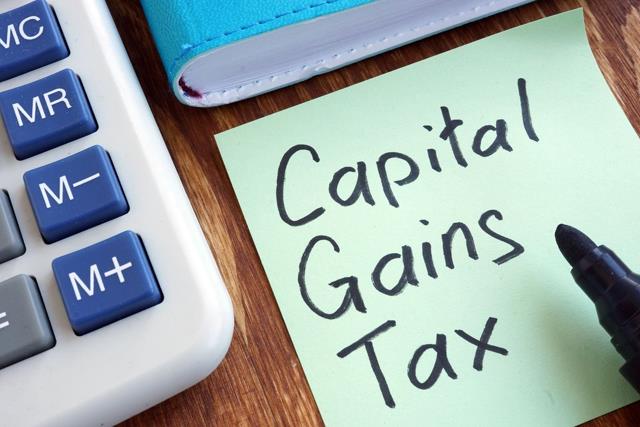Calculating Capital Gains Tax on the Sale of a Collectible

Calculating Capital Gains Tax on the Sale of a Collectible
Uncle Sam takes a tax bite out of almost every asset sold and collectibles are no exception. Indeed, collectibles are currently subject to one of the highest rates of federal taxation on an investment property. Long term Capital gain from the sale of a collectible is taxed at 28 percent.
What is collectible?
What is “collectible?” Of course, collectibles include stamps and coins, precious metals, fine wines, glassware, and other commonly collected items.
It’s important to keep in mind that less obvious items are often “collectibles.” For example, a collection of political campaign buttons and badges can be a collectible. If an item is an antique, it is probably a collectible.
Higher tax rate
Traditionally, collectibles have been taxed at a high capital gains rate because of public policy arguments. Supporters of high capital gains tax rates for collectibles justify their position by the lack of broader benefits, such as innovation, new products, and higher productivity, that society receives from collectibles. On the other hand, society benefits from the preservation of works of art, antiques, and many other collectibles.
Understanding basis
Before you calculate gain, you have to have an understanding of basic. If you purchased the item, then your calculations start with the cost of acquisition. These costs include not only what you actually paid for the collectible but also auction and broker’s fees.
Inherited collectibles are treated differently. Your basis is the collectible’s fair market value at the time of inheritance. Most commonly, fair market value is determined by an appraisal but there are other methods. Another way to show fair market value is by looking at current sales of comparable collectibles.
Your collectible may have been a gift from another person. In this case, your basis is the same as that of the person who made the gift.
Many collectibles require special care. You may have spent money to maintain the collectible or restore it. These costs are also part of your basis in the collectible.
After you have calculated your basis in the collectible, you subtract your basis from the amount you sold the item for. This is your capital gains.
Example. Beverly inherits a 19th-century rocking chair from her grandmother. Shortly before she died, Beverly’s grandmother had the chair appraised. Its value was determined to be $2,000. Beverly spends $500 to restore the chair. Two years later, Beverly sells the chair online. Beverly earns $3,900 from the sale. Beverly’s basis in the chair is ($2,500) ($2,000, which was the chair’s fair market value when she inherited it, plus the $500 she spent to restore it). Beverly’s short term capital gains tax is $1,400 ($3,900 minus $2,500). As a collectible, it is taxed at 28 percent rather than 15 percent, a difference of $182 in tax.
“Gold bug” advice
The price of gold has risen in the past several years. Investing in gold presents two issues. First, there is the issue of valuing gold coins. When coins have numismatic worth exceeding their face denomination, the amount realized is the numismatic value of the coins, not the face value. Second, if you want to invest in the price of gold rather than in the collectible nature of a gold coin, you should consider investing in gold strictly as a precious metal, such as through gold-mining stocks. That interest, and the gain realized by selling it, is entitled to full what is capital gain tax treatment. Do keep in mind however that mutual funds which buy and sell gold for their shareholders, exchange-traded funds (such as GLD and IAU) which buy and sell gold for their shareholders, and direct purchases of gold bullion and/or gold futures, are considered collectibles! The same applies to silver and other precious metals and gemstones.
Follow our Facebook page for more updates.
We hope you found this article about “Calculating Capital Gains Tax on the Sale of a Collectible” helpful. If you have questions or need expert tax or family office advice that’s refreshingly objective (we never sell investments), please contact us or visit our Family office page or our website at www.GROCO.com. Unfortunately, we no longer give advice to other tax professionals gratis.
To receive our free newsletter, contact us here.
Subscribe our YouTube Channel for more updates.

Alan Olsen, is the Host of the American Dreams Show and the Managing Partner of GROCO.com. GROCO is a premier family office and tax advisory firm located in the San Francisco Bay area serving clients all over the world.
Alan L. Olsen, CPA, Wikipedia Bio

GROCO.com is a proud sponsor of The American Dreams Show.

The American Dreams show was the brainchild of Alan Olsen, CPA, MBA. It was originally created to fill a specific need; often inexperienced entrepreneurs lacked basic information about raising capital and how to successfully start a business.
Alan sincerely wanted to respond to the many requests from aspiring entrepreneurs asking for the information and introductions they needed. But he had to find a way to help in which his venture capital clients and friends would not mind.
The American Dreams show became the solution, first as a radio show and now with YouTube videos as well. Always respectful of interview guest’s time, he’s able to give access to individuals information and inspiration previously inaccessible to the first-time entrepreneurs who need it most.
They can listen to venture capitalists and successful business people explain first-hand, how they got to where they are, how to start a company, how to overcome challenges, how they see the future evolving, opportunities, work-life balance and so much more..
American Dreams discusses many topics from some of the world’s most successful individuals about their secrets to life’s success. Topics from guest have included:
Creating purpose in life / Building a foundation for their life / Solving problems / Finding fulfillment through philanthropy and service / Becoming self-reliant / Enhancing effective leadership / Balancing family and work…

MyPaths.com (Also sponsored by GROCO) provides free access to content and world-class entrepreneurs, influencers and thought leaders’ personal success stories. To help you find your path in life to true, sustainable success & happiness. It’s mission statement:
In an increasingly complex and difficult world, we hope to help you find your personal path in life and build a strong foundation by learning how others found success and happiness. True and sustainable success and happiness are different for each one of us but possible, often despite significant challenges.
Our mission at MyPaths.com is to provide resources and firsthand accounts of how others found their paths in life, so you can do the same.
The Perfect Leadership Trio
The Perfect Leadership Trio Chip Conley, author of ” The Rebel Rules: Daring to be Yourself in Business, says your management team should consist of a brain trust that includes a “passionate visionary,” a “get-your-hands-dirty operator,” and a “responsible, finance-minded executive.” But how do you use this in your business? 1. Passionate visionary. The passionate…
Attorneys for the Rich Anxiously Await Trump’s Plan for Estate Tax
Chances are most people will never have to worry about paying a federal estate tax, since the value of most people’s estates don’t exceed $5.34 million. However, if president Trump has his way, not even the very few taxpayers that would have otherwise been affected by this law, will have to worry about it…
Millions of Big Earners Should Expect Higher Payroll Taxes in ‘17
For those who have been excited to see their tax bill go down under a Trump administration, there might be cause for some concern, especially for some of the country’s highest earners. That’s because for the millions of workers who pass a certain threshold a tax hike is coming. So why the increase? First,…
How Will Tax Reform Really Take Shape Under Trump and Ryan?
It’s no secret that both President Trump and other republican lawmakers want to change t he nation’s tax code and lower taxes across the board. However, as you might expect, they have different visions as to how to go about this. To be clear, though, both sides of the argument, namely the president and House Speaker…




